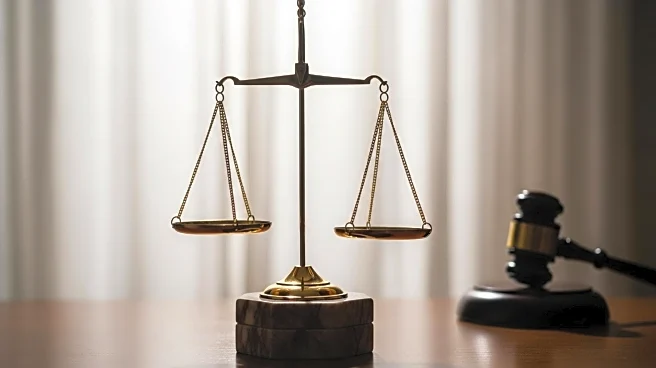What's Happening?
Former Federal Reserve chairs and Treasury secretaries have submitted a legal brief to the Supreme Court, urging it to prevent President Trump from firing Federal Reserve Governor Lisa Cook. The brief emphasizes the importance of the Federal Reserve's independence, which is considered a critical component of the U.S. monetary system. The signatories argue that allowing Cook's removal while her lawsuit challenging the dismissal is pending would undermine this independence and erode public confidence in the institution. Cook's lawsuit against President Trump, filed in U.S. District Court, seeks to block her removal, which Trump justified by alleging mortgage fraud. A federal judge initially barred Trump from firing Cook, a decision upheld by a split decision from a federal appeals court. Trump has since appealed to the Supreme Court to lift these orders.
Why It's Important?
The case highlights the ongoing debate over the independence of the Federal Reserve, a cornerstone of U.S. economic policy. The potential removal of Lisa Cook could set a precedent affecting the autonomy of the Fed, which is designed to operate free from political influence to maintain economic stability. The involvement of former high-ranking officials underscores the gravity of the situation, as they collectively stress the potential risks to the Fed's credibility and the broader financial system. If the Supreme Court sides with President Trump, it could lead to increased political interference in monetary policy, potentially impacting interest rates, inflation control, and economic growth.
What's Next?
The Supreme Court's decision on whether to allow President Trump to remove Lisa Cook will be pivotal. If the court permits her dismissal, it could lead to further legal challenges and debates over the limits of presidential power concerning independent agencies. Stakeholders, including economists and policymakers, are closely monitoring the situation, as the outcome could influence future appointments and the operational independence of the Federal Reserve. The decision may also prompt legislative discussions on safeguarding the autonomy of federal institutions.
Beyond the Headlines
The case raises broader questions about the balance of power between the executive branch and independent agencies. It could lead to discussions on the ethical implications of political influence over economic policy and the long-term effects on public trust in government institutions. The situation may also spark debates on the legal frameworks governing the appointment and removal of officials in independent agencies, potentially leading to reforms aimed at protecting their autonomy.









